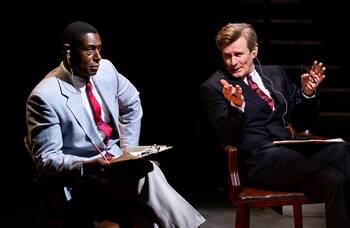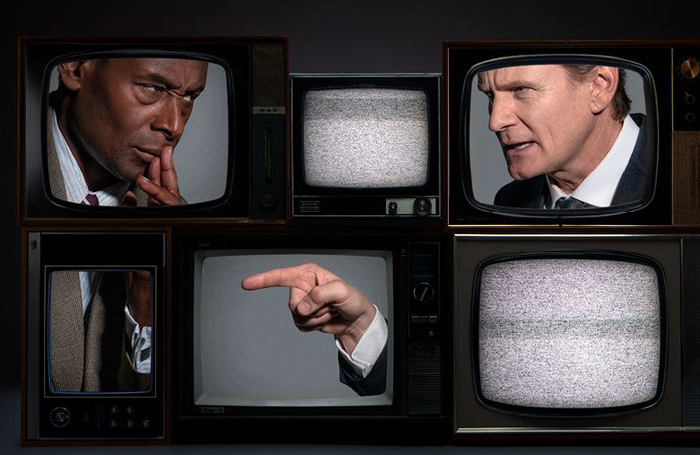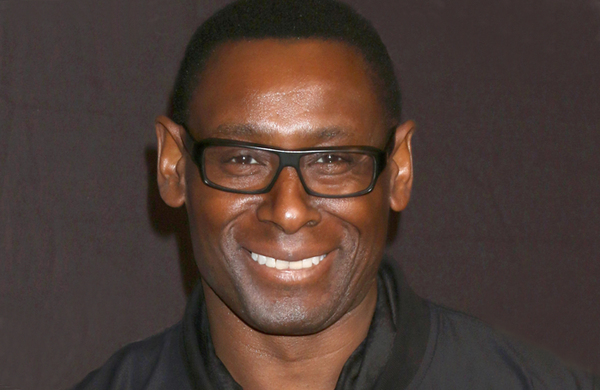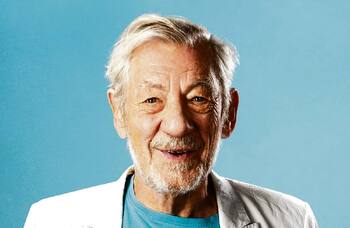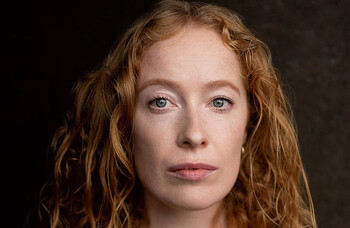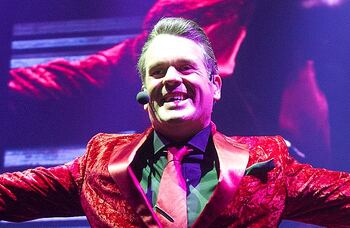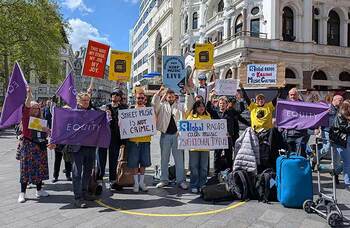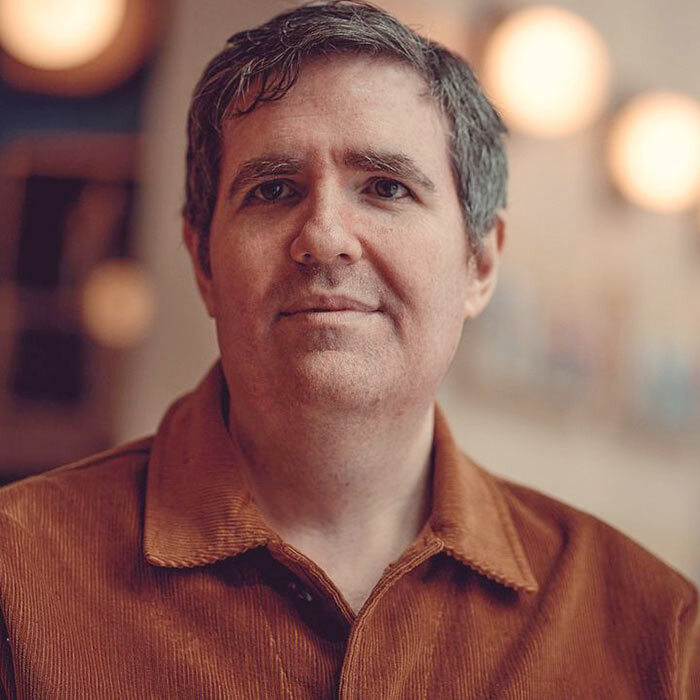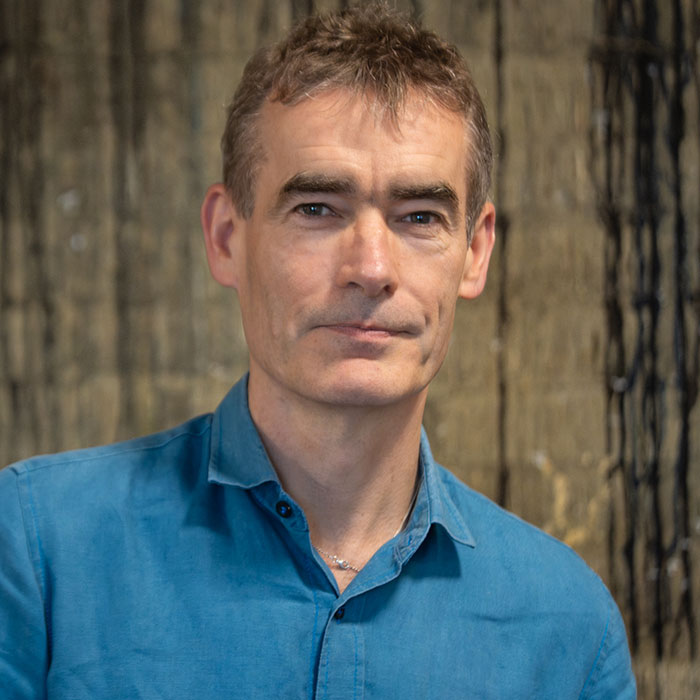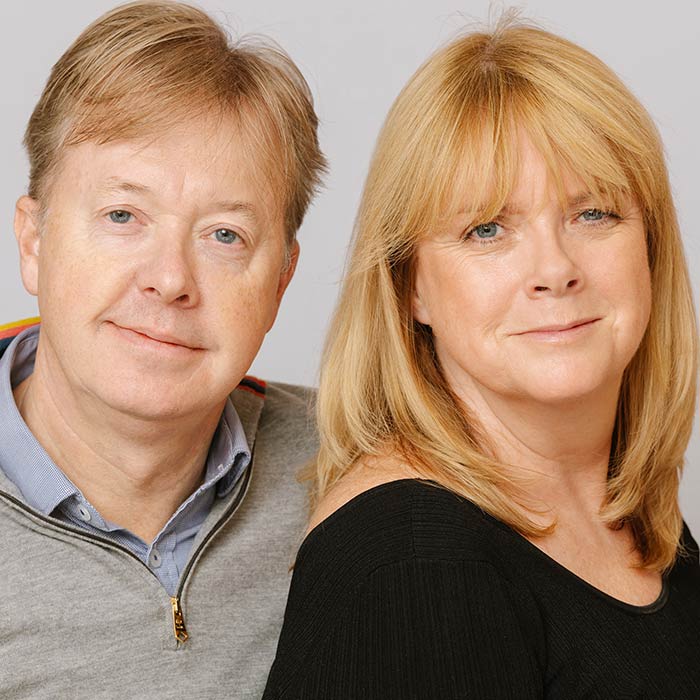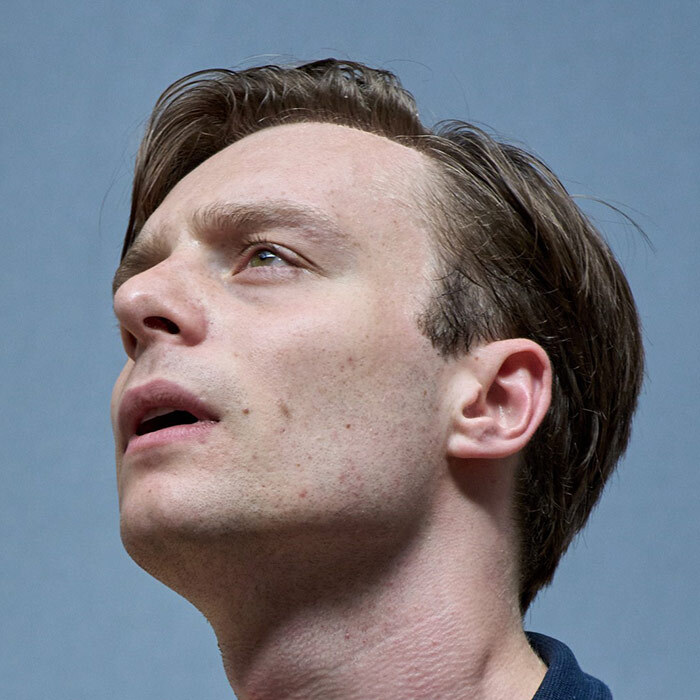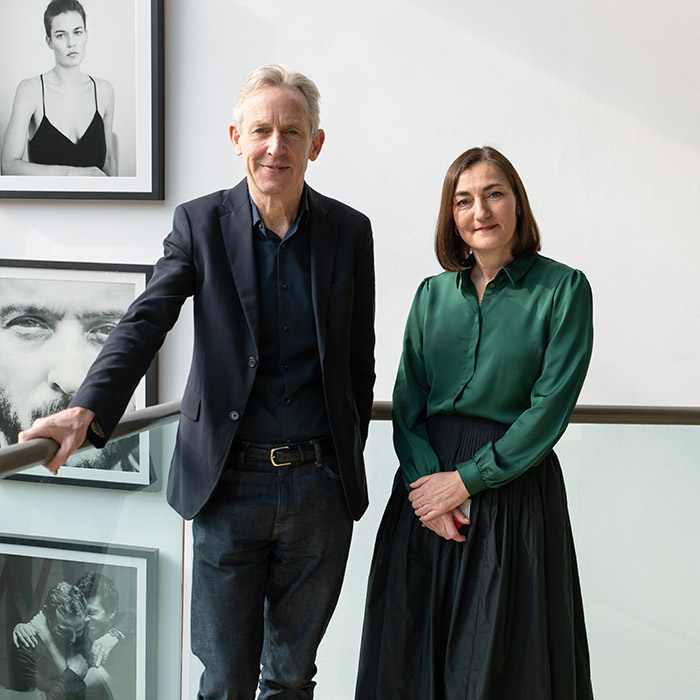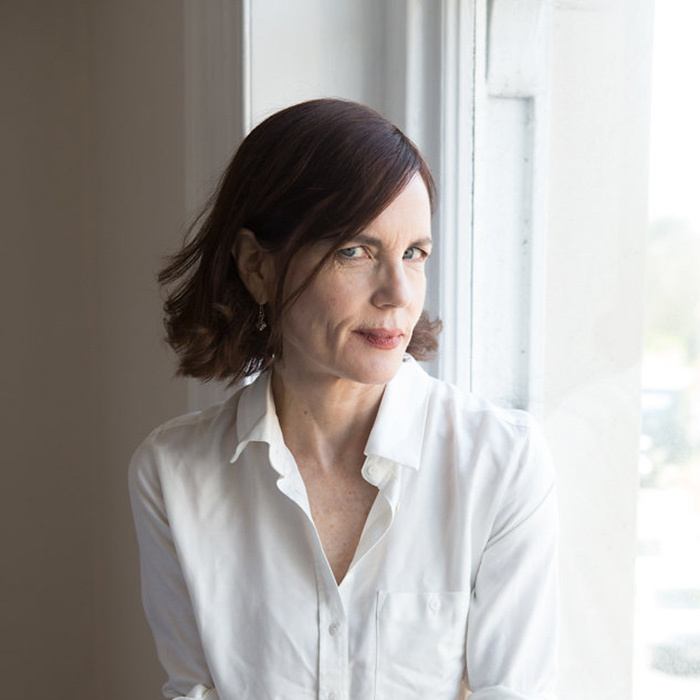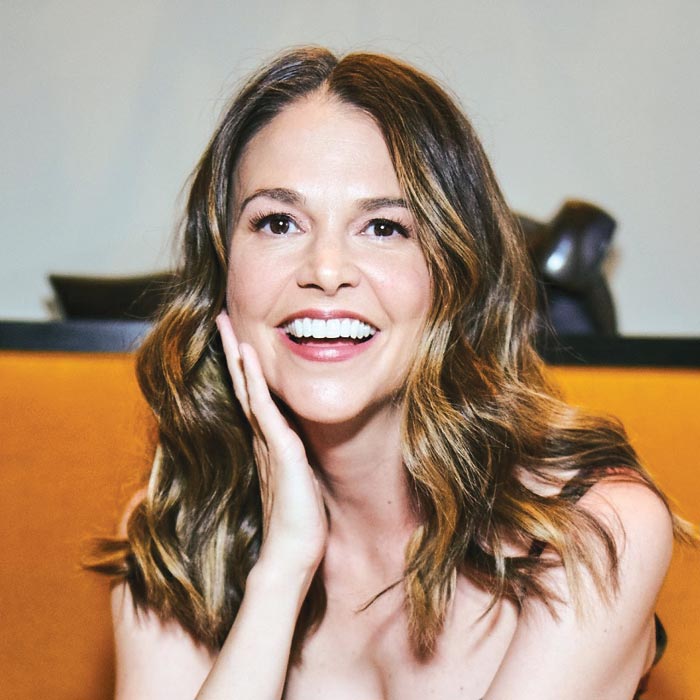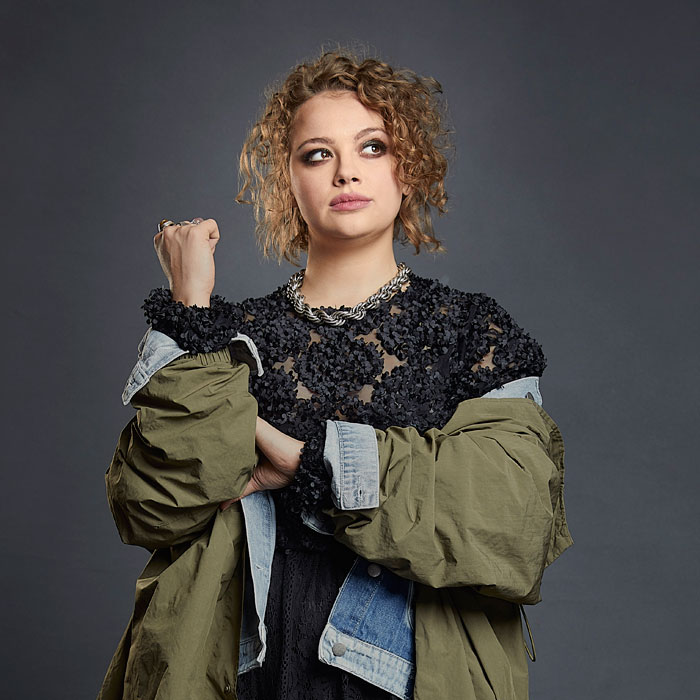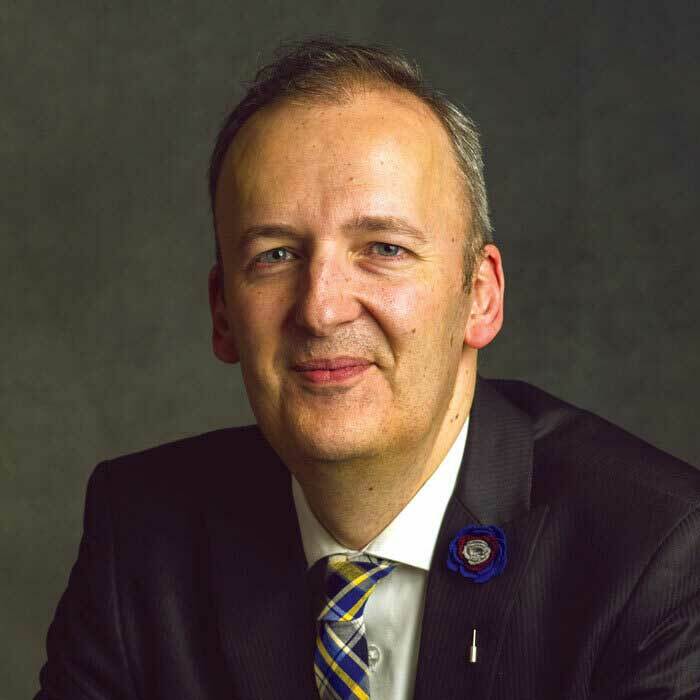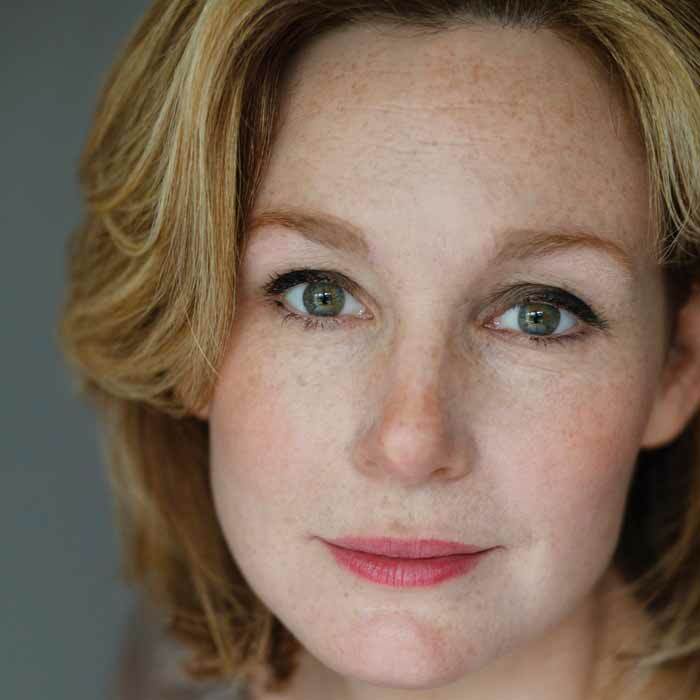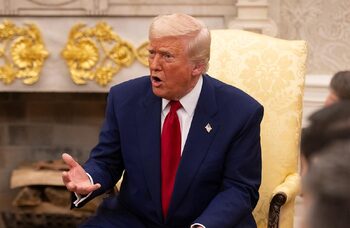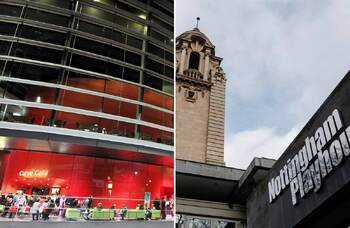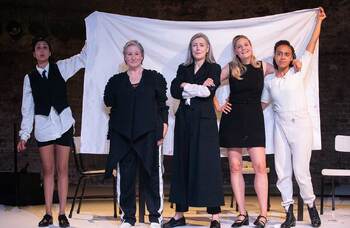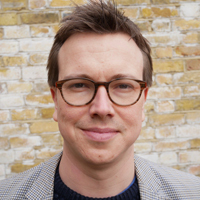 Theo Bosanquet
Theo BosanquetAfter spending much of the past decade working abroad, one of the UK’s most respected actors is back on home soil. As he prepares to grace the London stage again, he tells Theo Bosanquet about playing white conservative William F Buckley Jr, working with James Graham, the continued challenges for Black actors here and why he feels most at home in the theatre
After living in Hollywood for most of the past 10 years, making TV series such as Homeland, Selfie and Supergirl, David Harewood has returned home to the British stage. Much has happened in that time. Not least Brexit, the pandemic and the rise of the Black Lives Matter movement on both sides of the Atlantic in response to the death of George Floyd. Over lunch in the cafe of London’s Jerwood Space, where he is rehearsing for the premiere of Best of Enemies at the Young Vic, he says it has taken him time to reacclimatise.
“I feel a bit like I don’t understand where the country is right now,” he says. “I wasn’t here for the Brexit vote, and when it happened, I was really shocked. I thought it was a gag. A lot of people voted against their own interests. But everybody just seems to be shrugging their shoulders about it. I find that horrific. Two weeks after I got back there were the petrol shortages, and I thought: ‘What fucking place have I landed in?’ I feel a little bit lost.”
Harewood recently published a memoir, Maybe I Don’t Belong Here, which explores racism – his earliest memory is being hit in the head by a rock thrown by a neighbour in Birmingham – and its connection to the psychotic breakdown he experienced in his early 20s (which was also the subject of his acclaimed 2019 BBC documentary). He writes movingly about the schism he has experienced as someone who identifies as a proud British man, but has also been made to feel like an outsider. When he was seven, a stranger viciously racially abused him in the street. “And that’s when it happened, the two halves of me split,” Harewood writes. “There was now a Black half and an English half and I could feel myself slowly coming apart.”
Continues...
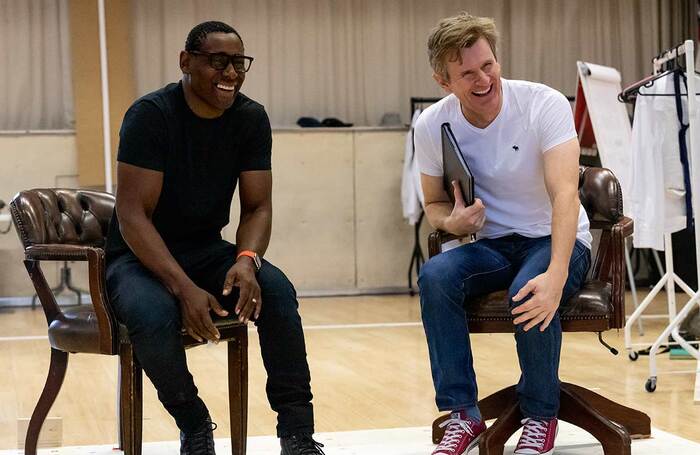
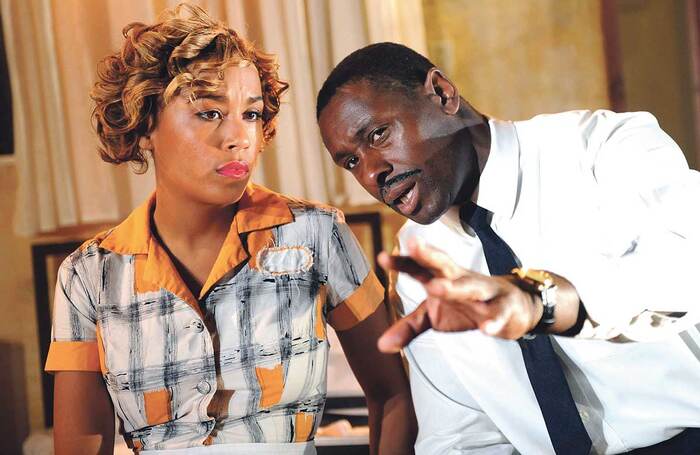
Q&A David Harewood
What was your first non-theatre job?
I worked in Heal’s on Tottenham Court Road as a storeroom assistant.
What was your first professional theatre job?
Playing Romeo for Temba Theatre Company.
What is your next job?
Another James Graham project, but I can’t say anything more.
What do you wish someone had told you when you were starting out?
It’s going to be tough.
Who or what was your biggest influence?
My kids. I’m inspired by them.
What is your best advice for auditions?
Learn your lines, don’t think you can blag it.
Do you have any theatrical superstitions or rituals?
I always like to get to the theatre very early, and be dressed and ready by the half.
Regression of attitudes
Those two halves were brought into sharp focus again in May last year. “The George Floyd murder exposed some of our fault lines,” Harewood says. “That’s when I started writing the book, because I feel there has always been a tendency in Britain to say that racism is an American problem. Which is, of course, bullshit. Then there was the Sewell report [into racial disparity in the UK], which essentially said that everything is wonderful and there’s no such thing as racism – it was just garbage.”
As a man with a deep interest in politics and a noted Labour supporter (he has previously voiced a campaign advert), it perhaps doesn’t come as a surprise that he feels there has been a particular regression of attitudes during the past 10 years of Tory governance.
“The culture wars have been very effective. They’ve divided people. There’s a line in the play about how criticising the country is unpatriotic, and that’s exactly what the Tories have done – the idea that you’re doing Britain down if you talk about racism. But we need to be self-critical, and I don’t think there’s been enough introspection, or enough questions asked.”
"I turned down the William F Buckley Jr role at first. I couldn’t see it – why would I want to play a white conservative?"
So it may raise some eyebrows that the role he plays in Best of Enemies is that of noted right-wing commentator William F Buckley Jr, whose series of televised debates with left-wing intellectual Gore Vidal in 1968 are the subject of James Graham’s latest political docudrama. The debates set the course for a more combative approach to TV punditry, symbolised by the infamous moment when Buckley angrily called Vidal a “queer” and threatened to knock him out.
“I turned it down at first, I couldn’t see it – why would I want to play a white conservative?” says Harewood. “But then I spoke to Kwame [Kwei-Armah, artistic director of the Young Vic] about it, who talked to me about his ideas, and met Jeremy [Herrin, the show’s director], who seemed like a lot of fun. So I said yes.”
A slice of Americana
He admits that, despite committing, he didn’t have a chance to study the script due to being so busy with his book. When he turned up on the first day of rehearsals, he was taken aback by the scale of the production, which he describes as a “slice of Americana”. He also says he was overawed having Graham in rehearsals. “He is the chronicler of our times, and I was very conscious of messing up his words. It must be how Elizabethan actors felt having Shakespeare in the room.” He jokes that it didn’t help that co-star Charles Edwards, who plays Vidal, turned up on the first day word-perfect.
Continues...
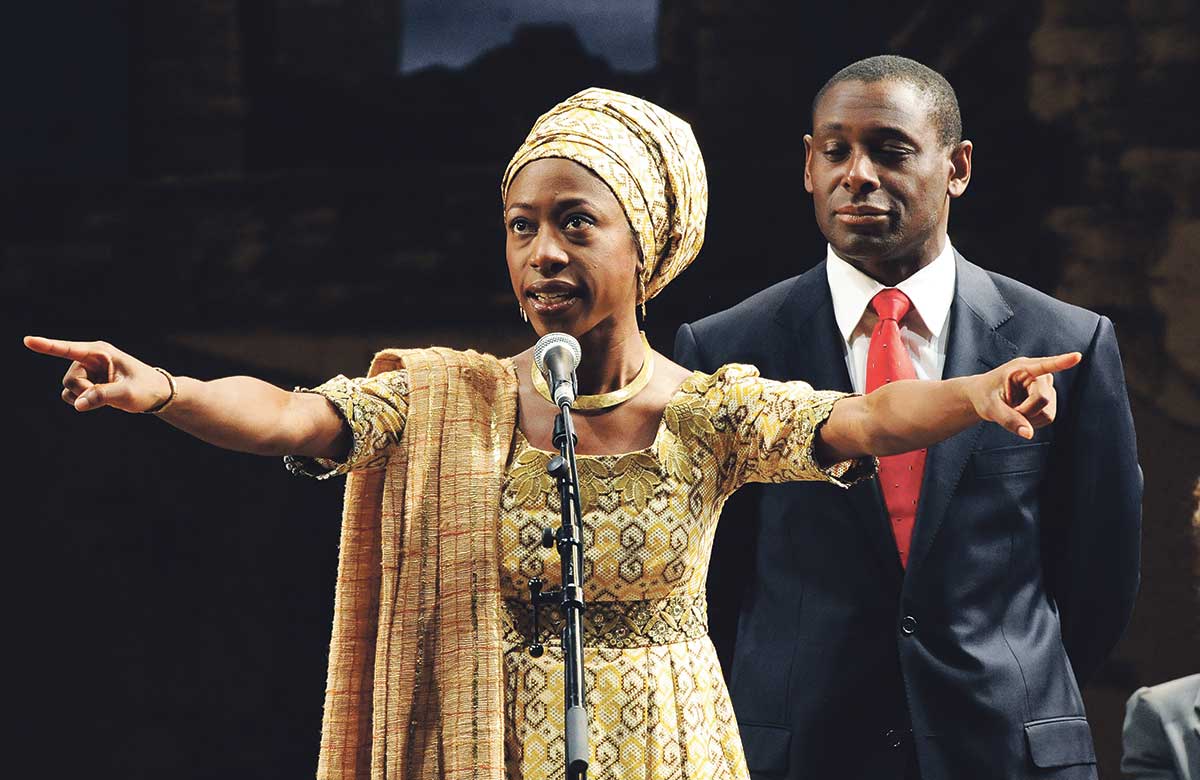
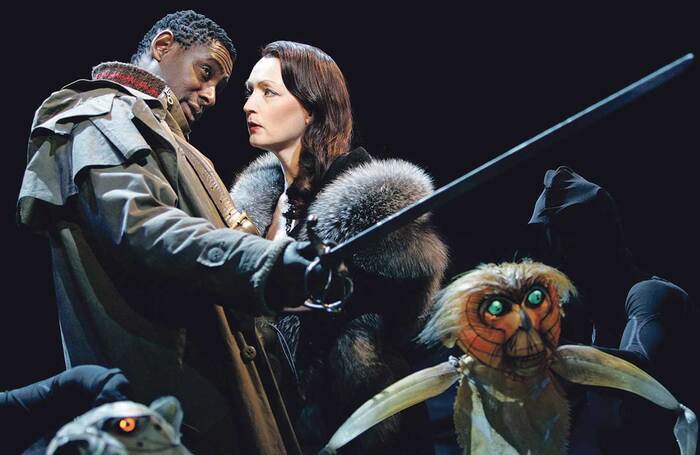
In researching Buckley, he came to find he was a charming figure, despite his contentious views. “The more I’ve read about him, [the more] I’ve discovered empathy with certain aspects of him, such as his attempt to steer the Republican Party away from the more racist, bigoted outlook of the John Birch Society and George Wallace, and more towards the centre. And he had a wicked sense of humour. Just because I don’t like his politics doesn’t mean I don’t like the man.”
Buckley had a very distinctive accent that fell somewhere between mid-Atlantic and southern American drawl. Harewood gives a brief snapshot of it, emphasising the nasal aspect of the way he spoke, and his slight twitch. It’s an amazing transformation. “He was a real wordsmith, and I enjoy that about him. He used the word ‘hobgoblinisation’ – I tapped it into Google and his face came up. He almost coined these words during the debates – no one else was using that language.”
Portraying real-life figures
But despite the clear reverence for his subject, Harewood says he doesn’t want to “sugarcoat” Buckley. He describes rehearsing a scene that features another of his famous debates – with Black civil-rights activist James Baldwin. “Afterwards the voice coach said: ‘He’s a fucking awful man’, which kind of startled me. Then she told me that had she been watching a white actor she probably would have disengaged from his argument sooner, but because it’s me she stayed with it. That’s going to be a challenge for the audience.”
I wonder what he thinks Buckley would have made of his portrayal? Harewood gives a wry chuckle. “I don’t think in his wildest dreams he ever would have imagined being played by a Black English actor, but in the context of the play I like to think he’d be somewhat titillated by it.”
Harewood is no stranger to portraying real-life figures. One of his landmark stage performances was as Martin Luther King Jr in the 2009 premiere of Katori Hall’s Olivier award-winning play The Mountaintop. That initial run at Theatre503 made for electrifying theatre. “I had such a good time on that show. I loved it, loved it,” Harewood enthuses. “The play was extraordinary and my co-star [Lorraine Burroughs] was fantastic. The fact Katori couldn’t get the play produced in America, because it was quite an irreverent take on a Black icon, was of huge attraction to me. It meant I could really go to town on it.”
He also played Nelson Mandela that same year in TV movie Mrs Mandela, which co-starred Sophie Okonedo. But despite such high-profile roles, it was a difficult period financially. In his book he reveals he was down to his last £80 when he went to the US to make Homeland in 2011. “It’s taken me 30 years to make a living. It’s been a tough road. But it’s also been the making of me, and I think I realised that when I wrote the book.”
Since the documentary and the book have come out, both of which detail his psychotic breakdown at the age of 23, which led to him being sectioned, he has been approached countless times by people thanking him for sharing his experience. “I’ve had a lot of especially Black actors saying thank you for writing it. I get a lot of messages from people telling me how much it has helped them.”
Continues...
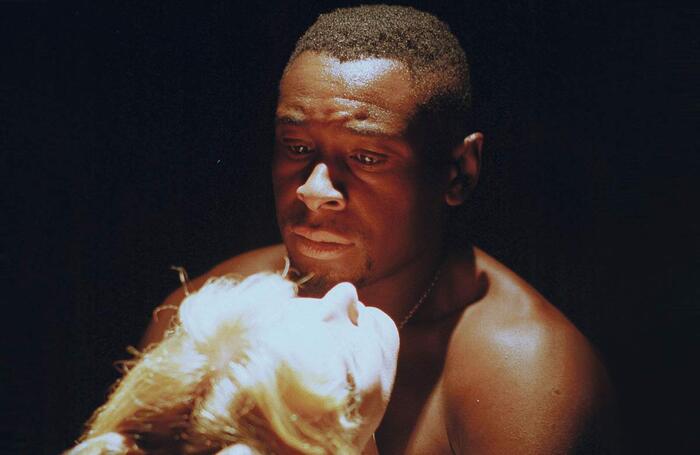
After studying at RADA in the mid-1980s, an experience he says was transformative, he describes graduating into the real world as “like being hit by a train”, part of which he attributes to the reviews he received and the questions he was constantly asked in interviews. His first professional role was Romeo in Temba Theatre’s landmark all-Black production of Romeo and Juliet, which played at the Young Vic. “All of a sudden all anybody wanted to talk about was my race. I’ve got the tools to talk about it now, I didn’t have them then.”
Weight of history
A decade later, in 1997, he became the first Black actor to play Othello at the National Theatre, a fact he still finds sobering. “I remember when I got cast there was a big piece in the Independent suggesting it was political correctness gone mad. That’s incredible. I did feel the weight of history, but it sat uncomfortably with me. I wasn’t quite as relaxed [in the role] as I would be now.”
"I haven’t been on stage in 10 years, so I’m excited to be back – it’s where I’m most at home"
I wonder if he feels a sense of unfinished business with the classics, and theatre in general. “Oh yeah. I haven’t been on stage in 10 years, so I’m really excited to be back and I want to do a lot more theatre. I don’t want to leave it that long again. It’s where I’m most at home, it’s in my bones.”
He teases that he’s “got my eye” on something at the National, but doesn’t reveal what. Something that has been announced is that he’ll make his film-directing debut with For Whom the Bell Tolls, centring on the rivalry between boxers Chris Eubank and Nigel Benn. “I directed a few episodes of Supergirl, and loved it. I especially enjoyed getting great performances out of actors. So this is really exciting for me. It’s a great story, in some ways in similar territory to my book, in terms of how you alter yourself to fit in in a country that doesn’t always welcome you. Although it’s about boxing, it’s not really a boxing film.”
He adds that having spent a decade on the “television train” in the US, and achieved a “reasonable position of comfort” financially, he wants to spend the next 10 years “doing what I want to do”. All of which should bode well for British audiences. But that is not, he says, to dismiss his television work, which he has “hugely enjoyed”. He has also presented several highly regarded documentaries, including recently Psychosis and Me and Why Is Covid Killing People of Colour? – both for the BBC.
Paucity of opportunities
He spoke out several years ago about the need for Black British actors to establish themselves in the US, due to the paucity of opportunities here. It’s a situation he says he still doesn’t fully understand. “I don’t know why… perhaps it’s fear of the audience. The idea that ‘nobody will watch it’ [if it’s not a white-led drama]. But the likes of Squid Game on Netflix has proved that’s bollocks. I think too many British broadcasters just play to a home crowd, they’re not thinking globally.”
This brings us back to the topic of the culture wars. He talks about the “weaponisation” of the word ‘woke’ and the way it gets used to knock diversity efforts. “It’s used as a derogatory term. Anything that’s progressive or diverse is labelled woke, and that’s depressing. It makes you realise there’s still so much work to do in terms of changing attitudes, and changing the structure of television. But we’ve got a culture secretary who doesn’t even understand how Channel 4’s funded. It’s just extraordinary where we’re at.”
But he is overwhelmingly positive about the prospects for the next generation of Black actors coming through. “When we were graduating, there weren’t nearly the number of opportunities there are now. We were queuing up outside the BBC for one part, and now there’s a whole range across a huge number of producers. They’re doing really well – Daniel Kaluuya, John Boyega and those boys, they’re globalstars. It’s nice to feel part of a continually growing wave.”
Having been so public about his mental health struggles, he seems to be in a good place right now. Back at home in Streatham, where he lives with his wife, two daughters and a dog, he is happy. “My family doesn’t like the limelight. It’s my job, so I go out and do the happy hands, but then I go home and I can switch off. I’m just dad when I walk in the door.”
He says managing his mental health requires ongoing vigilance. “My therapist reminds me how resilient I’ve been to get this far. So whenever I’m feeling a bit worried or overwhelmed, as I was at the beginning of these rehearsals, I remember how resilient I’ve been… And I have to keep an eye on when I’m struggling, which often happens if I’m doing too much and overcommitting. When the alarm bells start ringing now, I hear them loud and clear.”
CV David Harewood
Born: 1965, Birmingham
Training: RADA
Landmark productions:
Theatre:
• Romeo and Juliet, Temba Theatre (1988)
• Othello, National Theatre (1997)
• Peribanez, Young Vic (2003)
• His Dark Materials, National Theatre (2004)
• The Mountaintop, Theatre503 (2009)
TV:
• Mrs Mandela (2009)
• Robin Hood (2009)
• Homeland (2011-12)
• Selfie (2014)
• The Night Manager (2016)
• Supergirl (2015-21)
Film:
• Blood Diamond (2006)
• Parallel (2018)
Agents: Curtis Brown (literary); Conway van Gelder (acting)
Best of Enemies is at the Young Vic until to January 22, 2022
Big Interviews
Recommended for you
Opinion
Most Read
Across The Stage this weekYour subscription helps ensure our journalism can continue
Invest in The Stage today with a subscription starting at just £7.99

